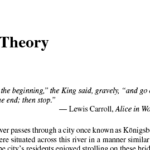The Way Forward In Terms Of Wildlife Conservation Should Start With A Blanket Ban On Hunting.
1. Implement a complete ban on trophy hunting to stop the unnecessary killing of animals.
2. Prohibit commercial hunting to eliminate the exploitation of wildlife for economic gain.
3. Enforce strict regulations regarding animal trafficking to combat illegal trade.
4. Promote education and awareness campaigns highlighting the importance of wildlife conservation.
5. Establish protected areas, national parks, and wildlife reserves to safeguard habitats.
6. Strengthen law enforcement efforts to control poaching and prosecute offenders.
7. Develop sustainable financing models for wildlife conservation projects.
8. Invest in community engagement programs to involve local communities in conservation efforts.
9. Encourage community-based wildlife management initiatives.
10. Support research and scientific studies to better understand wildlife behavior and habitats.
11. Collaborate with international organizations to combat wildlife crime across borders.
12. Encourage and support rehabilitation and breeding programs for endangered species.
13. Implement effective measures to control habitat destruction, such as deforestation.
14. Promote sustainable tourism practices that respect wildlife and ecosystems.
15. Foster partnerships with local communities to promote wildlife-friendly livelihood alternatives.
16. Provide incentives for private landowners to conserve wildlife habitats.
17. Promote responsible pet ownership to prevent the release of exotic species into the wild.
18. Advocate for stricter regulations on the use of pesticides harmful to wildlife.
19. Implement programs to address human-wildlife conflicts and mitigate negative impacts.
20. Enhance monitoring and surveillance systems to detect and prevent wildlife crimes.
21. Strengthen international cooperation in sharing knowledge and best practices.
22. Engage the public through citizen science programs to collect data on wildlife populations.
23. Develop and implement plans for the reintroduction of locally extinct species.
24. Foster habitat restoration initiatives to increase available resources for wildlife.
25. Encourage sustainable farming practices that minimize harm to wildlife.
26. Implement measures to decrease pollution in water bodies to protect aquatic wildlife.
27. Incorporate wildlife conservation into school curricula to educate future generations.
28. Provide support for indigenous communities in preserving traditional knowledge related to wildlife.
29. Establish strict penalties for wildlife trafficking, poaching, and habitat destruction.
30. Continuously monitor and evaluate the effectiveness of conservation strategies to make necessary adjustments.
More About The Way Forward In Terms Of Wildlife Conservation Should Start With A Blanket Ban On Hunting.
Title: Charting a New Path: Wildlife Conservation Begins with a Blanket Ban on Hunting
Introduction:
Welcome to our blog, where we delve into pressing environmental issues and explore ways to enhance the preservation of our planet’s precious wildlife. Today, we set our sights on discussing a critical aspect of wildlife conservation the urgent need for a comprehensive ban on hunting.
As stewards of this planet, it is our responsibility to ensure the sustainability of our ecosystems and protect the diverse array of species that inhabit them. Hunting, traditionally perceived as a leisure activity or a means of subsistence, has unfortunately contributed to the rapid decline of numerous wildlife populations worldwide. Thus, it becomes paramount to initiate a paradigm shift in our approach to wildlife conservation, focusing on the implementation of a blanket ban on hunting.
By curtailing hunting activities, we forge a new path towards safeguarding the delicate balance of nature and preserving our diverse wildlife. It is a pivotal step towards setting in motion a cascade of positive change that can reverberate through generations to come.
One of the significant consequences of hunting is the decimation of apex predators, a phenomenon known as the “trophy cascade.” When these key predators, such as lions, leopards, and tigers, are eliminated from ecosystems, it disrupts the natural balance and leads to effects that trickle down the food chain. This disruption can cause a surge in mesopredator populations, which then intensify their impact on smaller prey species. Ultimately, such imbalances threaten ecosystems and undermine the intricate interconnectedness of nature.
Apart from the ecological implications, hunting also poses a threat to endangered species. Many animals, like elephants and rhinoceroses, have faced dramatic population declines due to poaching, driven by the illicit trade in their tusks and horns. Unless immediate measures are taken to halt these practices through a comprehensive ban on hunting, the survival of these iconic creatures remains at stake.
Moreover, hunting often promotes an unsustainable utilization of wildlife resources. Unsustainable practices such as overhunting, where species are harvested faster than they can reproduce, can have catastrophic consequences for biodiversity. These destructive activities degrade natural habitats, disrupt ecosystems, and diminish the overall health of wildlife populations. By instating a blanket ban on hunting, we can shift the narrative to one that prioritizes sustainable conservation and grants species the opportunity to recover and thrive.
While some may argue that carefully regulated hunting could contribute to conservation efforts, the evidence suggests otherwise. Hunting regulations can inadvertently enable illegal activities, as the lines between legal and illegal hunting become blurred. Additionally, it is virtually impossible to accurately monitor and enforce hunting limits, which leaves room for overexploitation and abuse.
In conclusion, embracing a future of wildlife conservation begins with an unequivocal ban on hunting. This shift will provide a much-needed respite for vulnerable species, allow ecosystems to rebalance, and promote sustainable coexistence between humans and the natural world. The time for action is now, and we must band together to ensure a harmonious future where wildlife flourishes under our careful stewardship. Stay tuned as we explore further avenues and solutions to safeguard the incredible biodiversity that graces our planet.
The Way Forward In Terms Of Wildlife Conservation Should Start With A Blanket Ban On Hunting. FAQs:
FAQ: The Way Forward in Terms of Wildlife Conservation and a Blanket Ban on Hunting
Question 1: What is meant by a “blanket ban” on hunting?
Answer: A blanket ban refers to a complete prohibition on all forms of hunting, including trophy hunting, culling, and recreational hunting, across a particular jurisdiction or region. It aims to protect wildlife populations and their habitats from human intervention.
Question 2: Why is a blanket ban on hunting considered essential for wildlife conservation?
Answer: A blanket ban on hunting is considered essential for several reasons. It eliminates the risk of overhunting, protects endangered species from extinction, maintains ecological balance, preserves biodiversity, and allows wildlife populations to thrive naturally.
Question 3: Won’t a blanket ban on hunting adversely affect local communities that depend on hunting for their livelihood?
Answer: While sustainable hunting can indeed be a source of income for local communities, the negative impacts of uncontrolled hunting can outweigh its benefits. Implementing alternative livelihood opportunities, such as eco-tourism or sustainable agriculture, can help mitigate the impact of a hunting ban on local communities.
Question 4: How will enforcement of a hunting ban be ensured?
Answer: Enforcing a hunting ban requires a comprehensive approach, including increased patrolling by wildlife authorities, stricter penalties for violators, and the engagement of local communities as guardians of wildlife. Utilizing modern technology, such as drones or surveillance cameras, can also aid in the monitoring and enforcement of the ban.
Question 5: What measures can be taken to compensate hunters affected by the blanket ban?
Answer: Various compensation measures can be implemented to support individuals or communities affected by the hunting ban. This can include financial assistance, skills training for alternative livelihoods, or the creation of programs that enable former hunters to work as wildlife guides or ecotourism operators.
Question 6: Is it not possible to manage hunting sustainably rather than implementing a total ban?
Answer: Sustainable hunting practices are sometimes employed, but ensuring proper regulation and monitoring is often challenging. The potential risks of unsustainable practices, such as corruption, uncontrolled poaching, and the potential for targeted species’ decline, make a blanket ban a more reliable approach for wildlife conservation.
Question 7: Are there any exceptions when it comes to banning hunting, such as for cultural or subsistence reasons?
Answer: Context-specific exceptions can be considered, such as allowing subsistence hunting for indigenous communities who depend on wildlife for their survival. However, strict protocols, quotas, and partnerships with local communities should regulate these exceptions, ensuring the sustainability of such subsistence practices without endangering wildlife populations.
Question 8: Won’t prohibiting hunting lead to an increase in wildlife-human conflicts?
Answer: The implementation of a hunting ban should be accompanied by measures to mitigate wildlife-human conflicts. These can include the construction of physical barriers, implementing non-lethal deterrents, promoting community education and awareness programs, and investing in research to better understand and address conflicts between humans and wildlife.
Question 9: Can’t regulated hunting contribute positively to wildlife conservation through revenue generation?
Answer: While regulated hunting can generate revenue, it is often difficult to ensure proper oversight and prevent illegal activities. Alternative sources of revenue, such as eco-tourism or sustainable wildlife-based enterprises, can be explored as more ethical avenues to support conservation efforts, while also protecting species from potential exploitation.
Question 10: Are there any successful examples of countries implementing a blanket ban on hunting?
Answer: Yes, several countries have successfully implemented blanket bans on hunting, including Bhutan, Costa Rica, Kenya, and Botswana. These bans have led to notable increases in wildlife populations and conservation successes, proving that a comprehensive hunting ban can be an effective tool for safeguarding wildlife.





















